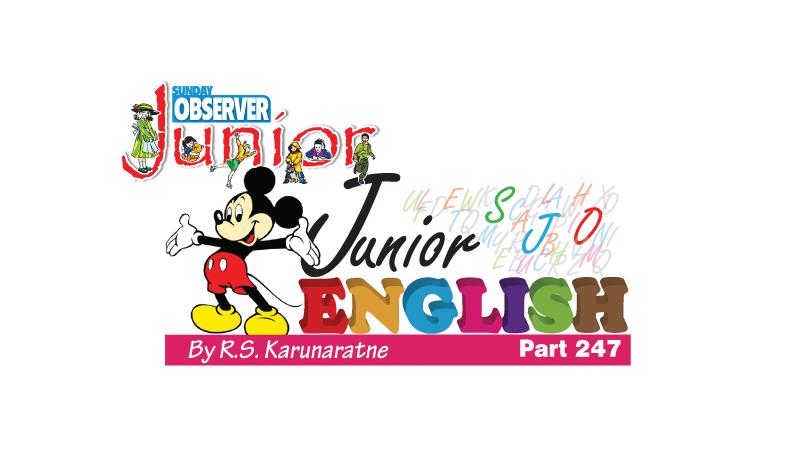
This is a guide to help learners to communicate easily in both speech and writing through a better understanding of the English language.
Onward / onwards
‘Onward’ is an adjective used only before a noun. It means ‘moving forward or continuing.’
SriLankan Airlines offers flights to Amsterdam with onward travel to The Hague.
‘Onwards’ is an adverb meaning ‘beginning at a particular time or age and continuing after that.’
There has been no significant development in Sri Lanka from the 1970s onwards.
Operator / operative
An operator is someone who operates a machine or piece of equipment.
Bob works as a part-time computer operator.
An operative is a worker, especially a factory worker.
The word is particularly used in business.
It also means ‘someone who does work that is secret in some way, especially for a government.’
Sam works as an intelligence operative.
Optimistic / pessimistic
‘Optimistic’ means ‘believing that good things will happen in the future.’
Bankers are cautiously optimistic about the country’s economic future.
An optimist is someone who believes that good things will happen.
‘Pessimistic’ means ‘expecting that bad things will happen in the future or that something will have a bad result.’
Some people have a pessimistic view of life.
A pessimist is someone who always expects that bad things will happen.
Optimum
‘Optimum’ means ‘the best or most suitable for a particular purpose or in a particular situation.’
Do we have optimum conditions for growth?
The design makes the optimum use of the available space.
‘Optimum’ is another vogue word suffering from overuse.
Or / er
Many nouns, particularly those ending in ‘-ate’ which are derived from Latin end in ‘-or.’
Placate: placator
Dictate: dictator
Liberate: liberator
Other words ending ‘or’:
Collector, protector, proctor, director
Some words have alternative endings, ‘-er’ when applied to people and ‘-or’ for inanimate objects:
Adapter or adaptor
Conveyer or conveyor
Ordinance / ordnance
An ordinance is a decree or command. It is an authoritative rule of law.
‘Ordnance’ means ‘cannon or artillery or military weapons of all kinds.’
Orient / orientate
The Orient is the name given to the East, applied to countries east of Mediterranean, from the archaic word ‘orient’ meaning ‘east.’ It also means the lustre of a pearl.
‘Orientate’ means ‘to place so as to face the East, or to place something in any definite position in relation to compass points or surroundings.’
Oriental / Eastern
‘Oriental’ refers to the lands east of the Mediterranean. ‘Eastern’ can apply to the eastern part of any country or continent. When used as proper nouns, write them with a capital letter.
Ornate / ornamental
‘Ornate’ means ‘covered with a lot of decoration.’
Thelma received an ornate gold mirror on her birthday.
‘Ornamental’ means ‘designed to make something look attractive rather than to be used for a particular purpose.’
The pillars in the palace are purely ornamental.
Oscillate / osculate
‘Oscillate’ means ‘to keep changing between two extreme amounts or limits.’
The stock market is oscillating wildly at the moment.
‘Oscilloscope’ is a device which represents a changing amount on a screen in the form of a wavy line.
To ‘osculate’ is to bring into close contact.
On the other hand / on the contrary
‘On the other hand’ introduces a supplementary statement to another statement.
‘On the contrary’ proposes a contradiction.
Osmosis
This is a popular word among writers. It means ‘the process in plants and animals by which a liquid moves gradually from one part of the body or the plant to another through a membrane.
Fluid flows back into the tiny blood vessels by osmosis.
It also means the way in which ideas and information gradually spread between people.
The children were never taught the songs. They just listened to other children singing them and learned them by a process of osmosis.
Ostensible / ostentatious
‘Ostensible’ means ‘appearing or claiming to be one thing when it is really something else.
The Opposition’s ostensible goal is to clean up government corruption, but their real aim is to defeat the ruling party.
‘Ostentatious’ means ‘too obviously showing your money, possessions or power, in an attempt to make other people notice and admire you.’
People criticise the ostentatious lifestyle of certain Parliamentarians.
